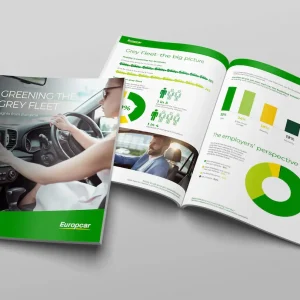Many businesses are now seeking a broader approach to sourcing a mobility partner – one that digs deep into the supplier’s mid- to long-term fleet strategy, business model and resources because it leads to better travel choices for both employer and driver.
This is now a greater opportunity than ever. Demand for rental mobility is growing and embracing new travel requirements as the manufacturer marketplace continues to restrict vehicle availability for at least the short to medium term.
To deliver this approach, we see five core questions that fleet and travel managers are increasingly asking rental companies to shape a better business travel conversation:
1. What is the three- to five-year requirement? Is there technology to help us map locations, vehicle types and journey profiles, as well as reducing duty of care exposure?
Data helps switch perspective from ‘rental as a service’ to ‘mobility as a solution’, which enables suppliers to design a bespoke travel plan to meet your requirement. Can the supplier help you capture it?
The proposal may include a blend of long-term rental, use of on-street or dedicated car club vehicles, EVs, ride sharing and pool car alternatives. It may also recommend introducing software to measure, triage and qualify vehicle demand, potentially reducing the number of miles and journeys as well as managing risk.
2. What is the vehicle investment strategy? Is there a plan to scale in line with your requirements, including a migration to EVs?
Check what the rental firm’s vehicle acquisition strategy has been over the past three, six and 12 months and be clear that there is an adequate supply to meet your needs.
Eventually, we may well see vehicle oversupply once again. However, check that businesses are adapting to a new and pivoted marketplace that certainly isn’t going to change radically in the coming months.
3. What is the physical resource and capability?
More distributed workforces, with some employees working from anywhere or from multiple locations, means vehicles need to be located close to where they live as well as work.
How close are the nearest branches and car club vehicles? Are there any branches open on a Sunday and on weekends? How many vehicles are available for automated rental 24/7, all year round? What is the plan for extending the network with new branches and for expanding services at each location?
4. How will your team provide the support and expert advice we require?
The switch to electric vehicles is only one of the factors that is driving the importance of the human touch in the rental process. Everyone is experiencing a global talent shortage and many organisations are seeing automation and AI as an opportunity to decrease headcount.
How is the rental company responding? How committed are they to creating long-term careers for its employees? How does the business provide training and encourage customer service excellence?
5. Is there sufficient capacity and resilience in the face of ongoing ‘VUCA’ – volatility, uncertainty, complexity and ambiguity?
In an increasingly uncertain world, there is so much more than costs to manage when it comes to business travel. Can your rental partner help you with the decarbonisation agenda? Do they have the breadth of product you need and a local and global footprint? Is there evidence of innovation and new approaches to mobility that will drive efficiencies and create more opportunities?
Paul McCorkell is director of business rental UK and Ireland at Enterprise





